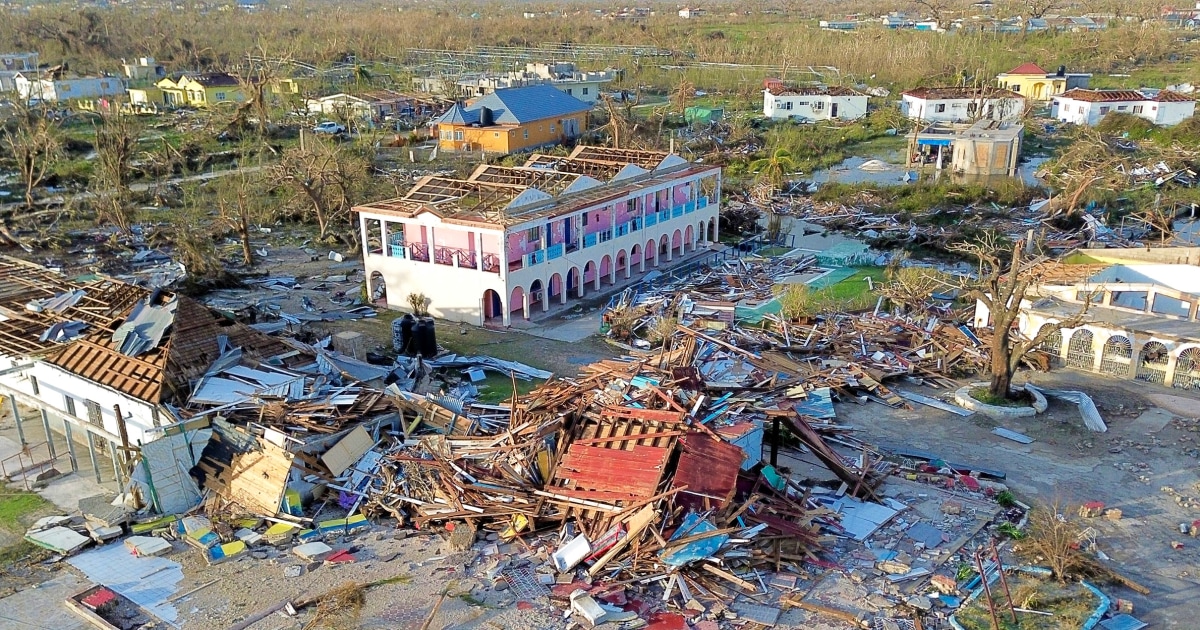Traffic snarled as stop lights lie among piles of debris. Once-mighty trees and power lines in ruin on streets turned to rivers. Entire communities swept away by winds and flood waters, according to satellite imagery.
These are just some of the scenes of devastation Jamaica woke up to Thursday morning, 48 hours after Hurricane Melissa raged through the island nation as the most powerful storm in its history and one of the most potent ever recorded anywhere. The United Nations said the damage was on a level “never seen before.”
Cuba is also counting the cost after the storm collapsed houses and blocked roads, after some 735,000 people spent the night in shelters, with the full extent of the damage still unclear.

The monster cyclone had winds of up to 185 mph and has killed at least seven people in Jamaica and 27 more across the Caribbean this week.
The storm was making its way to the Bahamas and Bermuda Thursday morning and a shelter-in-place hurricane warning was in place for both nations. The storm has greatly weakened to 100 mph, making it a still-dangerous Category 2 storm capable of inflicting major damage.
But for Jamaica and Cuba the task of providing aid to affected communities and rebuilding starts now.

The urgent humanitarian challenge has prompted immediate responses from countries around the world and NGOs alike after more than 400,000 people in Jamaica were directly impacted.
The U.S. State Department said it was sending a Regional Disaster Assistance Response Team (DART) to the region as well as U.S.-based Urban Search and Rescue teams.
However one former and two current U.S. officials told NBC News on Wednesday that this response was delayed due to the government shutdown and the elimination of USAID. Previously, the DART team would have been already on the ground in Jamaica, the sources said, but instead missed the opportunity to travel ahead of the storm.
The U.S. nonprofit Project Dynamo is sending more than 3,000 pounds of essential aid to Jamaica in multiple aircraft, including water purification kids and medical items, which it calls Operation Cool Runnings, a reference to the cult 1993 movie.

The U.N. World Food Programme plans to deliver 2,000 emergency food boxes from Barbados as soon as flights resume to Jamaica, enough to feed about 6,000 people a week. “This is a terrible tragedy and there is a real sense of urgency here on the ground,” Brian Bogart, WFP director for the Caribbean, told the U.N.’s news service.
The American Red Cross said it was was operating ambulances across Jamaica on Thursday responding to emergencies in shelters and taking people to hospitals
Jamaican Prime Minister Andrew Holness was in the hard-hit community of St James on Wednesday, posting video of homes inundated with water and mud.
“Despite the difficulties the Jamaican spirit shines through as a strong reminder we are a resilient nation with the capacity to triumph over adversity,” he said.

U.N. Resident Coordinator Dennis Zulu told a news conference that Jamaica’s recovery would take months at least.
“I don’t think there’s any single soul on this island that was not affected by Hurricane Melissa, ” he said.
Jamaica is accepting donations to its official Hurricane Melissa Relief fund.


